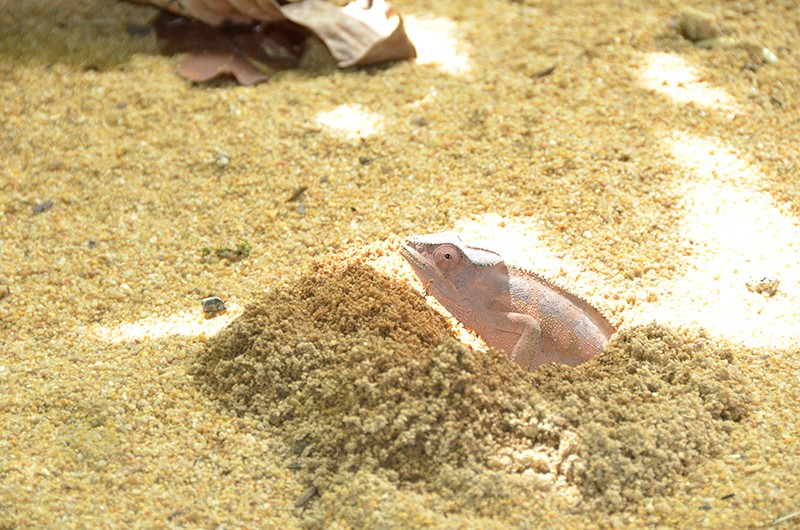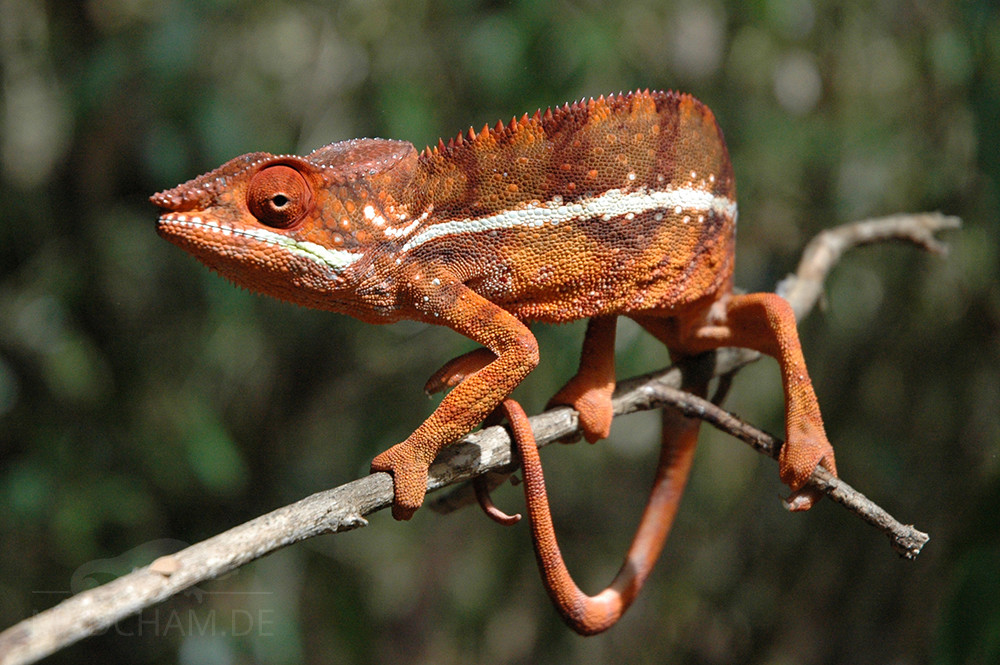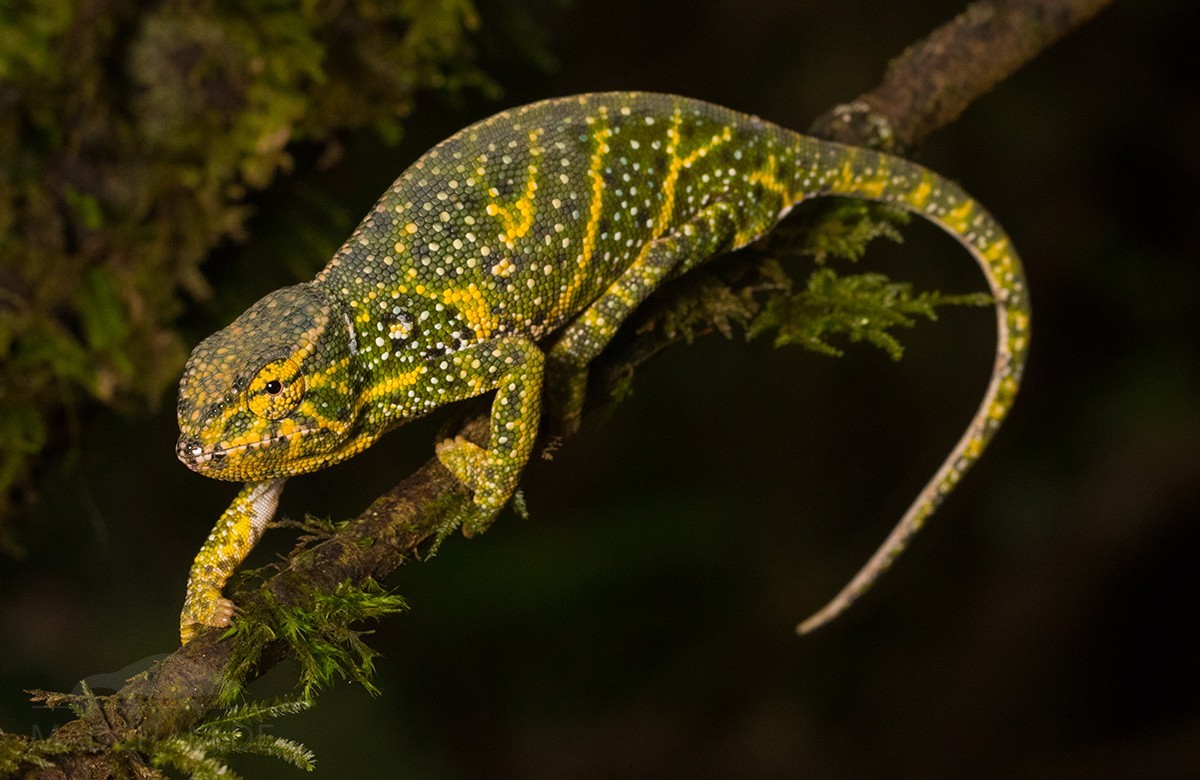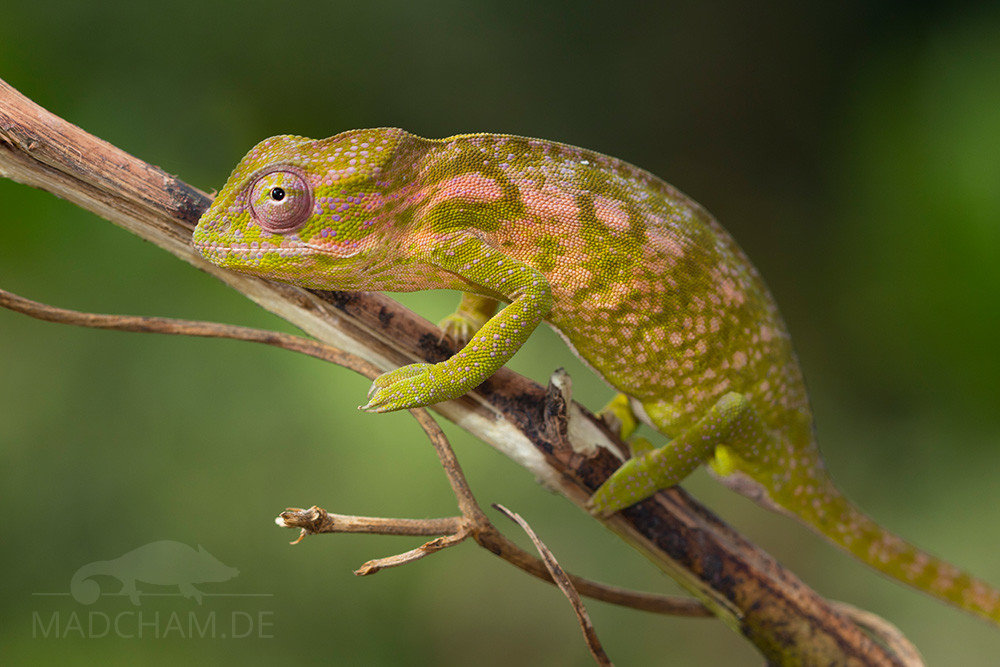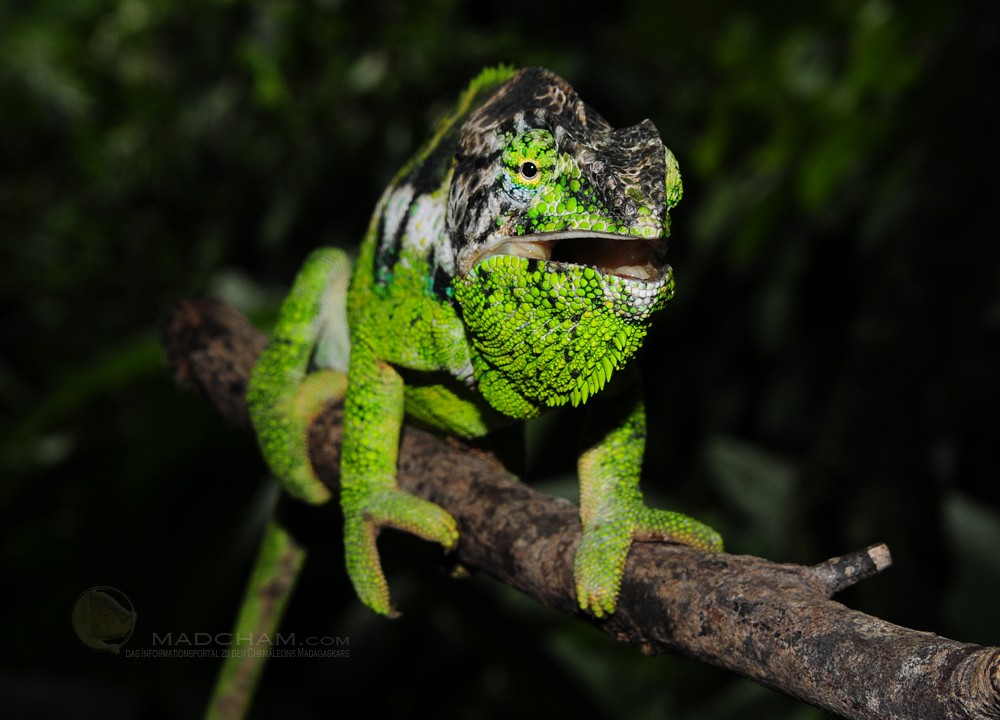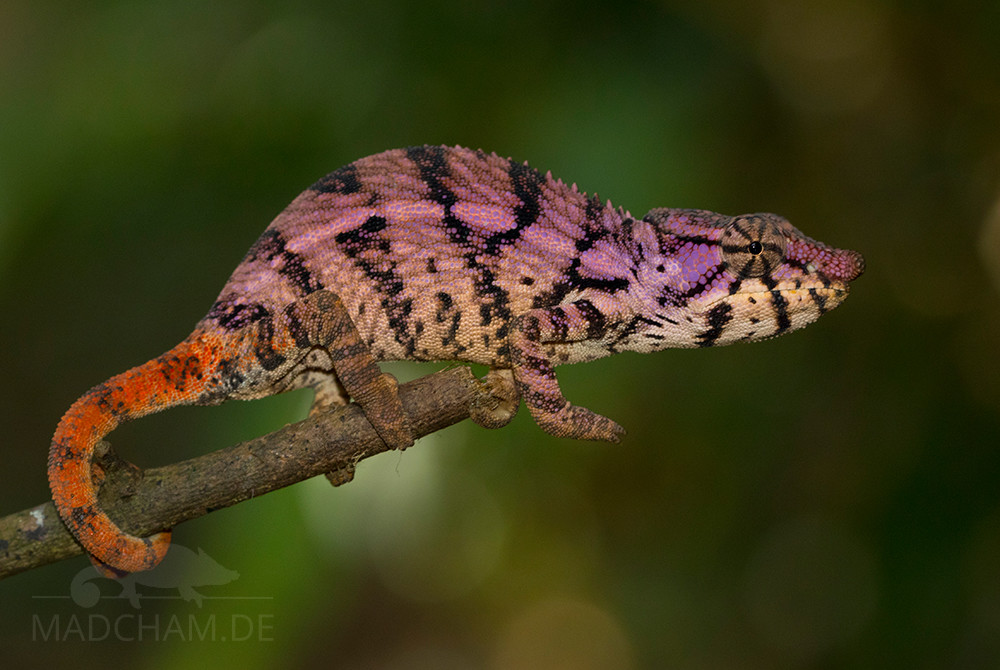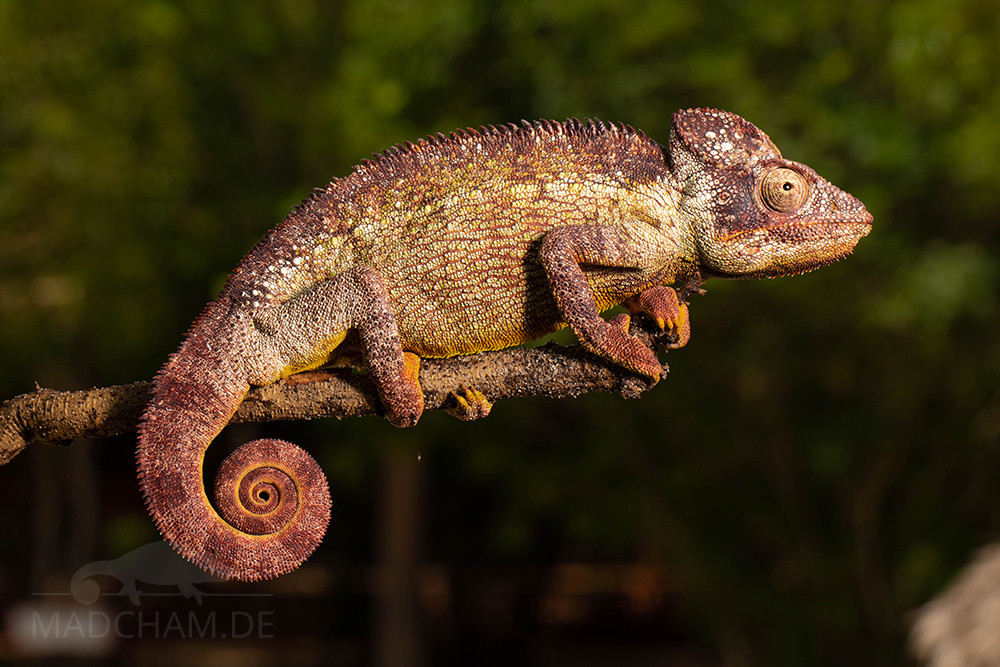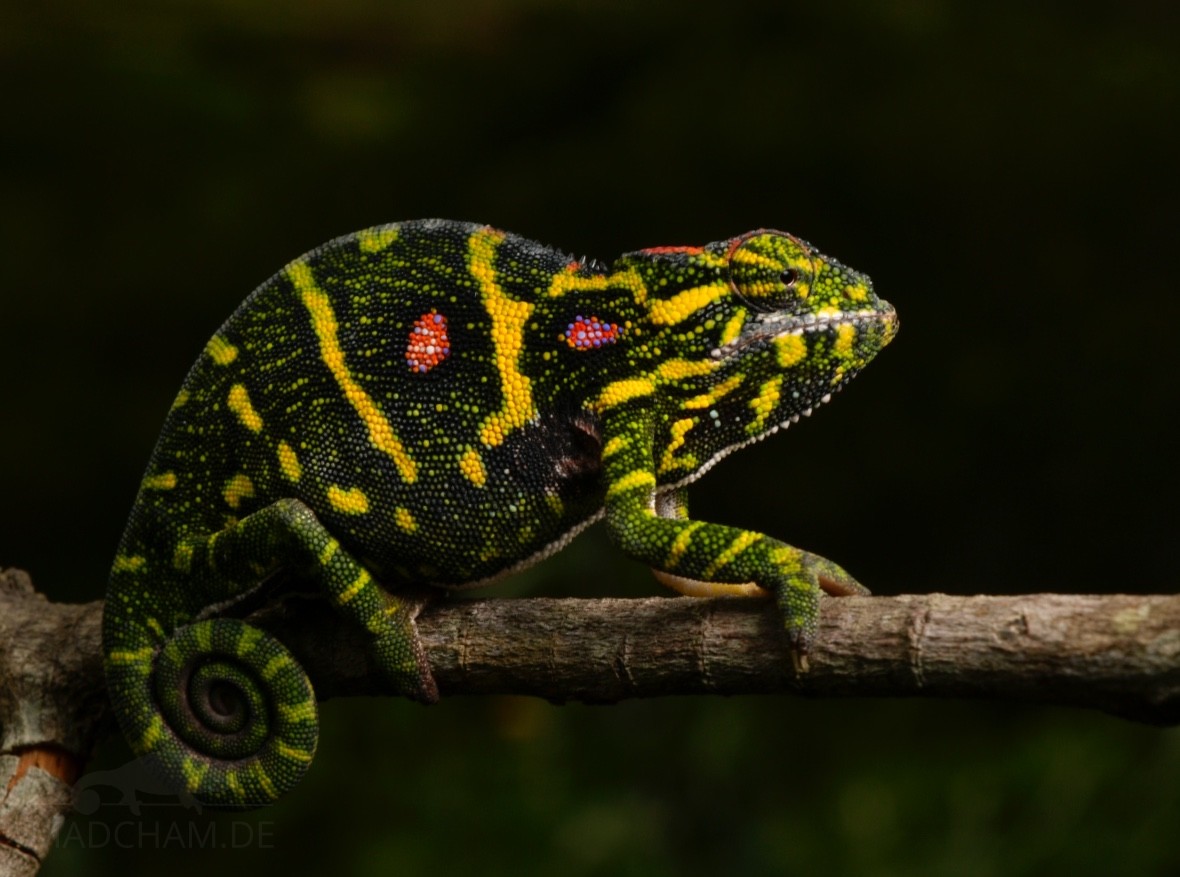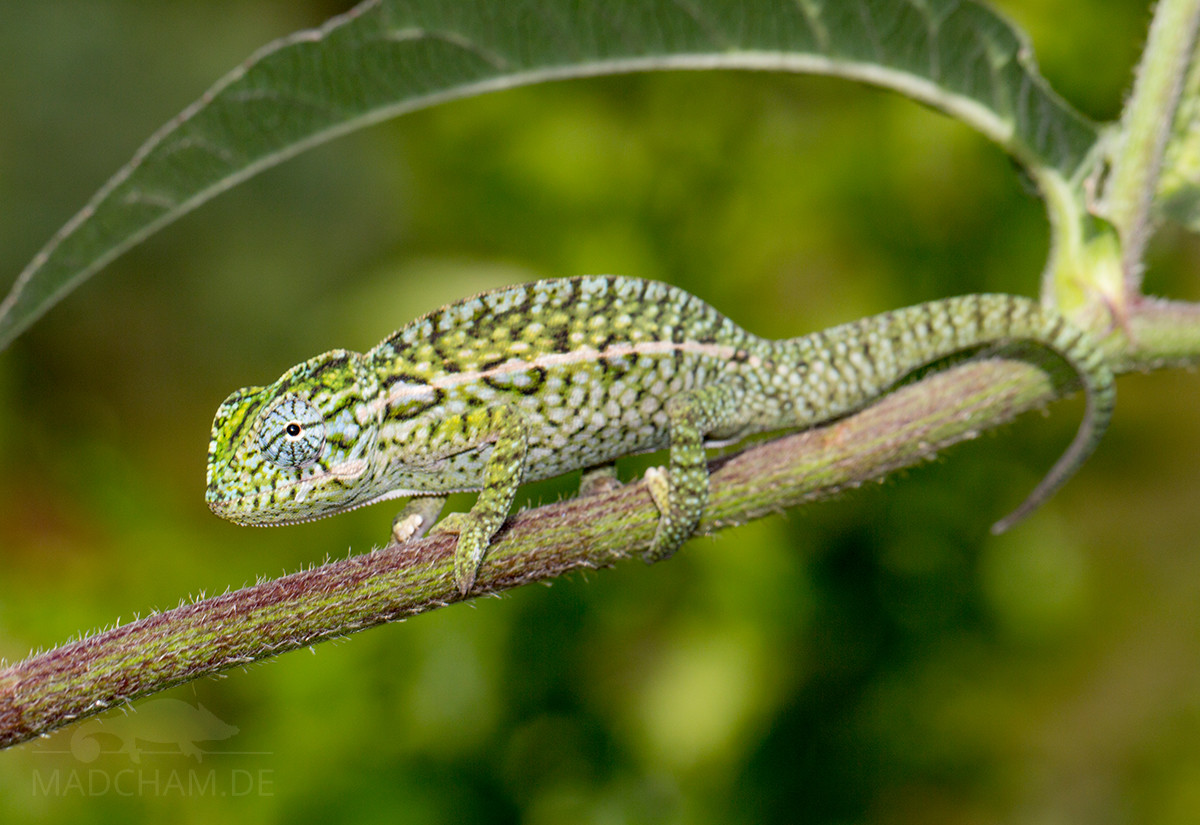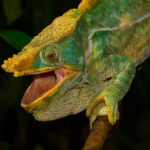Egg-binding
What means egg-binding? Egg-binding describes the fact that a female cannot lay her ready-to-lay eggs. Causes There are many things that can cause a chameleon to be egg bound: The eggs are too much...
Local form Ankarana West
Distribution of the local form: Ankarana national park is in northwest Madagascar in region Diana. It is separated into two large areas by the Tsingys, an impressive needlestone formation. One side is the east,...
Local form Ankarana East
Distribution of the local form Ankarana East The Ankarana National Park is located in the northwest of Madagascar in the Diana region. By the Tsingys, an impressive needle rock formation, the National Park is...
Furcifer willsii
First description: (Günther, 1890) Origin of the species name: The German zoologist Albert Carl Ludwig Gotthilf Günther, then Director of the Zoological Department of the Natural History Museum of London (Great Britain), named this...
Furcifer viridis
First description: Florio, Ingram, Rakotondravony, Louis & Raxworthy, 2012 Origin of the species name: The biologists Antonia M. Florio, Colleen M. Ingram from the Natural History Museum in New York (USA), Hery A. Rakotondravony...
Furcifer verrucosus
First description: (Cuvier, 1829) Origin of the species name: The French zoologist and palaeontologist Georges Léopold Chrétien Frédéric Dagobert Baron Cuvier founded the largest anatomical collection in Europe at the University of Paris (France)....
Furcifer rhinoceratus
First description: (Gray, 1845) Origin of the species name: The English zoologist John Edward Gray described the species very briefly and named it after the Latin rhinoceros. By this, he meant the different pronounced...
Furcifer oustaleti
First description: (Mocquard, 1894) Origin of the species name: The zoologist François Mocquard of the Natural History Museum in Paris (France) received chameleons in the 1890s from M. Catat, the entomologist Charles Alluaud and...
Furcifer minor
First descriptions: (Günther, 1879) Origin of the species name: The German zoologist Albert Carl Ludwig Gotthilf Günther, then director of the Zoological Department of the Natural History Museum of London (Great Britain), received a...
Furcifer lateralis
First description: (Gray, 1831) Origin of the species name: The English zoologist John Edward Gray was very brief in his description of this chameleon species: it consists of just keywords instead of a coherent...

